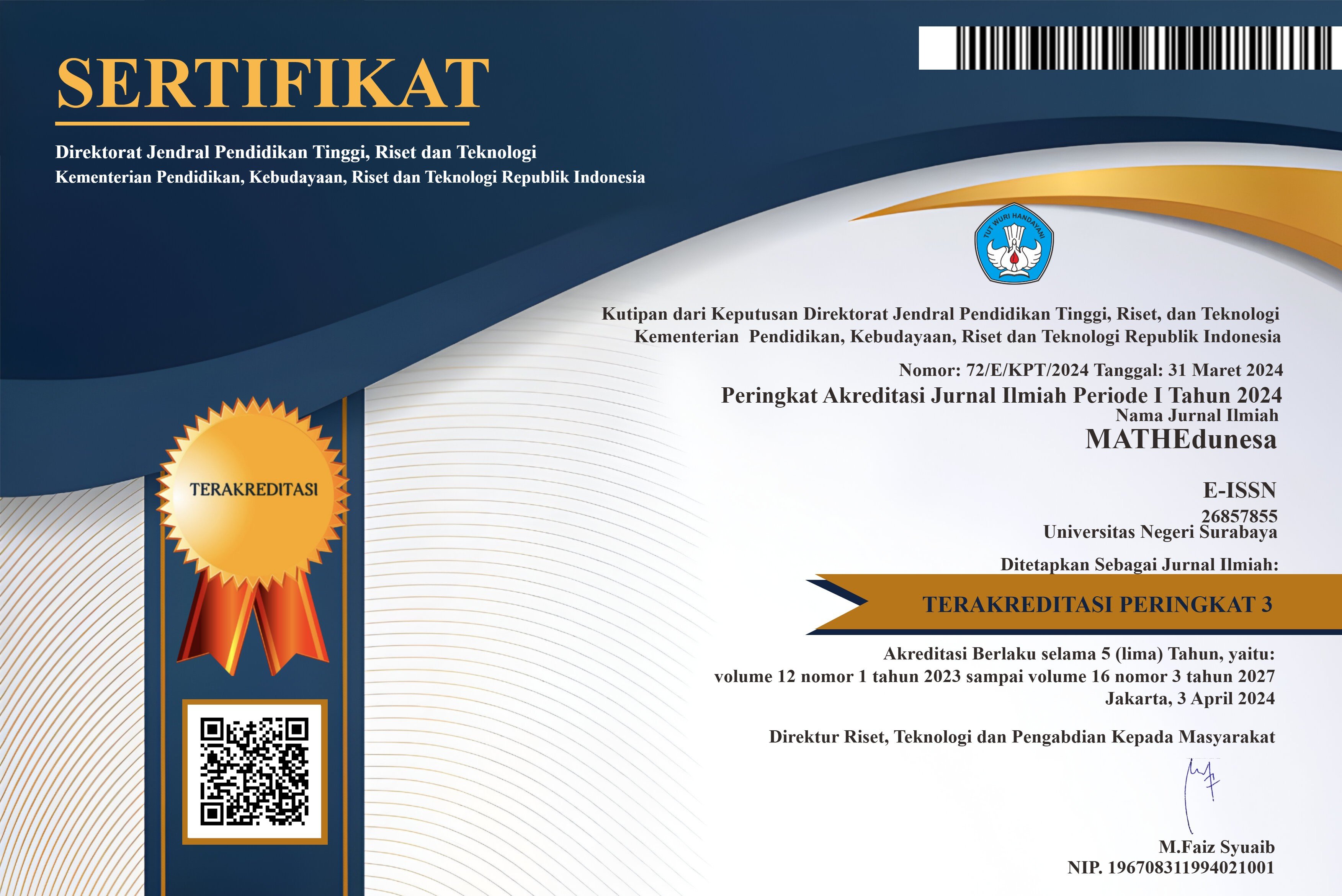Literasi Matematis Berbasis Budaya Mojokerto Dalam Perspektif Etnomatematika
Literasi Matematis
DOI:
https://doi.org/10.26740/mathedunesa.v11n1.p198-209Abstract
Mathematical literacy and ethnomathematics have an important relationship in the idea of ??knowing the role of mathematics in everyday life. Mathematical literacy is an important component that a person has in mathematics that focuses on mathematical competence and social life, while ethnomathematics is a component of mathematics that focuses on habits developed in cultural groups of society. The object of this research focuses on the culture of Mojokerto which includes Bejijong batik, Ujung Art, and Bo Liem dumplings. The purpose of this research is to describe the study of mathematical literacy found in ethnomathematical studies in terms of content, context, and mathematical process aspects. This research is a type of qualitative research using an ethnographic approach. Data was collected through observation, interviews, and data recording. Are research instrument used is the researcher himself (human instrument) as the main instrument and observation sheets and interview guidelines as supporting instruments. Are data analysis technique used isdomain analysis, taxonomic analysis, and cultural themes. The results of research on Mojokerto culture based on ethnomathematical studies found the application of geometric transformations, concepts of flat and geometric shapes, concepts of number patterns, concepts of probability of events, and mathematical concepts in counting and measuring activities. Based on an ethnomathematical study of the activities of the three cultural systems in Mojokerto, it fulfills the aspects of mathematical literacy so that it can implement ethnomathematical-based mathematical literacy questions that can be used to support the learning process, namely in the form of the output of the Minimum Competency Assessment (AKM) Numerical Level 4 Grade 8.
Downloads
Downloads
Published
Issue
Section
 Abstract views: 360
,
Abstract views: 360
, PDF Downloads: 600
PDF Downloads: 600




